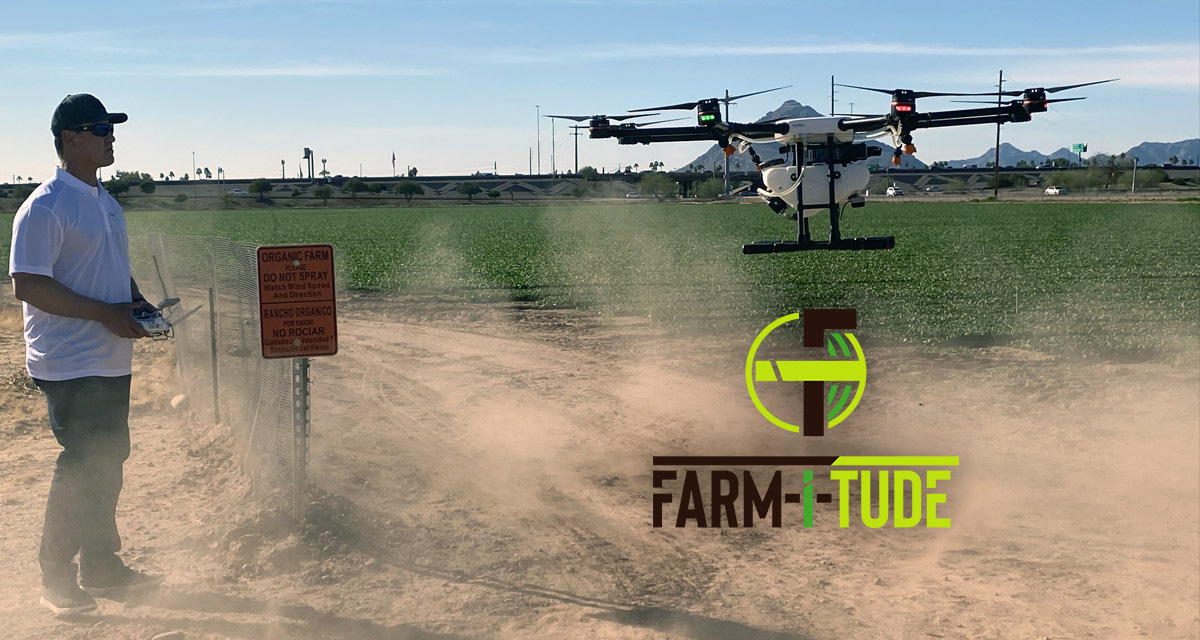
Don Wakamatsu with a DJI Agras T16 Sprayer Drone
MLB Bench Coach Don Wakamatsu is a third-generation farmer and the co-founder of the precision ag program Farm-i-tude. “We have lost thousands of small farms in the past couple of years because of a multitude of reasons, but two big ones are costs and resources,” says Wakamatsu.
By looking at how to make his own farm profitable, he realizes that many small farms are in the same situation. His quest became to save his farm and teach others best practices to increase their profitability and harvest yield. Farm-i-tude was born. It was a new attitude about farming. Don was committed to coming up with the most innovative, cost-effective way to manage natural resources and implement the latest technology available to large growers.
“Through my own experiences, what we learned is there are billions of dollars currently being invested in building both drones and technology. These drones look at resources management, specifically water, and even plant health, but few are actually teaching farmers or the next generation how to use the technology,” says Wakamatsu
He took on the challenge of bringing this technology to high schools, university agriculture programs and overcoming barriers of entry by finding the best school available to teach drone certification (107 license) and drone safety.
“Rio Rico High School in southern Arizona has one of the best agriculture teachers in the nation with Richard McPherson and his FFA program. Dr. Ed Franklin is leading the UofA agriculture drone program that teaches students the benefits of drones in the everyday agriculture fields. Finally, USI (Unmanned Safety Institute) rounded out the best partnerships to kick this program off,” says Wakamatsu. “We needed a complete program from cradle to grave, and with these partnerships, we can build a strong pathway to learning and jobs.”
The Farm-i-tude program has created drone days to support Mr. Mcpherson’s introduction to drones curriculum. That includes adding to his Mavic 2 drone, a couple of Inspires, an Agra MG, and the new big daddy on the block, a T16. This gives the students a rounded look at how drones are used to map and detect issues in the field, then using the T16 to help solve those problems with precision spraying. Ultimately the drones are saving farmers time in the field, addressing concerns, managing their magnitude, and decreasing the use of unneeded chemicals on the crops or in the air.
This pathway to job creation is not limited to just farming. The Farm-i-tude partnerships teach skill sets with drones needed to check utility lines, construction inspection, forestry mapping and hotshots demands, surveying, livestock management, and on and on.
“It’s amazing how drones can change a small farm’s chances of survival,” says Wakamatsu, “but the best part is watching the next generation get excited to learn this technology and take it back to the farm. Drones will change small farms.”
For more info on Farm-i-tude and how to get involved, visit Farmitude.org
Calling all rodeo fans! Are you looking for something fun and exciting to do this… Read More
NASHVILLE, Tenn. – The Austin Gamblers rode into Nashville and did what no one else… Read More
Are you in the market for a new vehicle, but don’t feel like driving all… Read More
Queen Creek, Arizona – Mark your calendars and prepare for an incredible adventure! Join us… Read More
Get ready for the most anticipated bull riding event of the year! The 3rd… Read More
Mandan, North Dakota - What does it take to become a champion? From Friday, September… Read More
This website uses cookies.
Read More